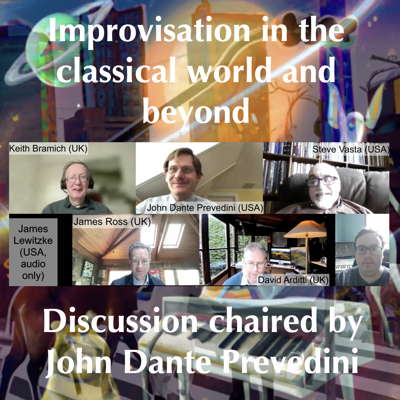 DISCUSSION: John Dante Prevedini leads a discussion about Composers, individuals or collective?, including contributions from David Arditti, Halida Dinova, Robert McCarney and Jane Stanley.
DISCUSSION: John Dante Prevedini leads a discussion about Composers, individuals or collective?, including contributions from David Arditti, Halida Dinova, Robert McCarney and Jane Stanley.
- Alban Berg: Wozzeck
- Barbara Bonney
- Jonathan Trout
- Hélène Grimaud
- Florent Schmitt
- Burkina Faso
- Asia
- Tianxu An
 DISCUSSION: John Dante Prevedini leads a discussion about Improvisation in the classical world and beyond, including contributions from David Arditti, James Lewitzke, James Ross and Steve Vasta.
DISCUSSION: John Dante Prevedini leads a discussion about Improvisation in the classical world and beyond, including contributions from David Arditti, James Lewitzke, James Ross and Steve Vasta.
Johann Joseph Fux
Austrian composer, theorist and teacher Johann Joseph Fux was born in Hirtenfeld, Styria in approximately 1660 and studied at the Jesuit Ferdinandeum University in Graz. He was influenced by the musical scene in Italy, is thought to have visited the country more than once and was called 'the Austrian Palestrina'.
He was organist at St Moritz in Ingolstadt from 1685 until 1688, but by the 1690s he was in Vienna, and from 1698 he was taken on as court composer by Emperor Leopold I. From 1715 he was Hofkapellmeister, and he served two more Habsburg emperors: Joseph I and Charles VI.
He wrote much sacred music, including masses, oratorios and requiems, and much secular vocal and instrumental music, including nineteen operas. His 1725 Latin treatise Gradus ad Parnassum influenced the later contrapuntal writing of many composers, including Haydn and Mozart.
Fux died in Vienna on 13 February 1741.

